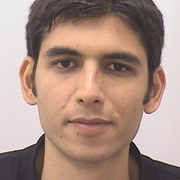- Level Foundation
- المدة
- الطبع بواسطة Johns Hopkins University
-
Offered by

عن
Systems science has been instrumental in breaking new scientific ground in diverse fields such as meteorology, engineering and decision analysis. However, it is just beginning to impact public health. This seminar is designed to introduce students to basic tools of theory building and data analysis in systems science and to apply those tools to better understand the obesity epidemic in human populations. There will also be a lab in which students will use a simple demonstration model of food acquisition behavior using agent-based modeling on standard (free) software (netlogo). The central organizing idea of the course is to examine the obesity epidemic at a population level as an emergent properties of complex, nested systems, with attention to feedback processes, multilevel interactions, and the phenomenon of emergence. While the emphasis will be on obesity, the goal will be to explore ways in which the systems approach can be applied to other non-communicable diseases both nationally and internationally. Topics will include: a) the epidemiology of obesity across time and place, b) theories to explain population obesity, c) the role of environments and economic resources in obesity c) basic concepts and tools of systems science, d) modeling energy-balance related behaviors in context, e) agent-based models, systems dynamic models, and social network modelsالوحدات
Welcome
1
Videos
- Welcome to the Course
Obesity, The Facts of the Case (Or Why Obesity Pushes Our Buttons) - Tom Glass, PhD
3
Videos
- Obesity, The Facts of the Case (Or Why Obesity Pushes Our Buttons) - Tom Glass
- Beyond the Usual Suspect: Why This Case Is Hard To Crack
- Explanations: The Food Supply, A System of Interest
Obesity in Human Populations Through a Systems Science Lens - Tom Glass, PhD
3
Videos
- Obesity in Human Populations Through a Systems Science Lens - Tom Glass
- Taking a Systems Perspective: 5 Key Features
- What is so "Systemy" About Obesity?
Quiz Module 1
1
Assignment
- Module 1
System Dynamics - Dan Taber, PhD, MPH
4
Videos
- What Is a Complex System?
- Nuts and Bolts of System Dynamics Models
- Developing a Stock and Flow Model
- Policy Resistance
Modules 2 Quiz
1
Assignment
- Module 2 Quiz
System Dynamics Lab Lesson - Rahmat Beheshti, PhD
2
Videos
- Coding tutorial for systems dynamics model
- From stock and flow diagram to developing a SD model in Vensim
Lab 1 Quiz
1
Assignment
- Lab 1 Quiz
1
Readings
- Important: Models for Lab Assessment
Social Networks and Obesity - Kayla de la Haye, PhD
3
Videos
- What Are Social Networks?
- Social Network Analysis
- Obesity & Social Networks
Neighborhoods and Noshing: Foraging and the Food Environment - Tom Glass, PhD
3
Videos
- Neighborhoods and Noshing: Foraging and the Food Environment
- Why Should We Care About Neighborhoods for a Systems Science of Obesity
- Foraging Theory: A Unifying Framework?
Prices and Poverty - Jessica Jones-Smith, PhD, MPH, RD
3
Videos
- Lecture 6: What's price (and income) got to do with it?
- Less money, more problems?
- Taxman: Can Price Manipulations Be Used to Promote Healthful Eating
Module 3 Quiz
1
Assignment
- Module 3 Quiz
Conceptual Motivation for ABM - Rahmat Beheshti, PhD
2
Videos
- Agent-based modeling: A simpler way to understand complexity
- Why agent-based modeling?
Agent Based Modeling - Tak Igusa, PhD
2
Videos
- Development of a Simple Model with Environment, Peer Networks, and Agent Behaviors
- Food Foraging ABM:Embedded in a GIS-Based Environment
Module 4 Quiz
1
Assignment
- Module 4 Quiz
Agent Based Modeling Lab Lesson - Tak Igusa, PhD, and Rahmat Beheshti, PhD
3
Videos
- Lab 2 Part 1: Tutorial on building ABMs in Netlogo environment
- Lab 2 Part 2: ABM for Food Store; Food Foraging ABM
- Lab 2 Part 3: Income-Diet model example with extensions
Lab 2 Quiz
1
Assignment
- Lab Quiz 2
1
Readings
- Important: Models For Lab Assessment 2
Wrap Up
1
Videos
- Congratulations!
1
Readings
- Learn more about the Global Obesity Prevention Center
Auto Summary
Explore the intersection of systems science and public health with a focus on the obesity epidemic in "Systems Science and Obesity." Led by expert instructors on Coursera, this foundational course delves into epidemiology, theories, and the role of environments in obesity. Learners will engage with agent-based models using free software and apply systems science to non-communicable diseases globally. Ideal for health and fitness enthusiasts, the course offers flexible subscription options, including Starter and Professional plans.

Jessica Jones-Smith

Rahmat Beheshti

Daniel Taber

Kayla de la Haye

Thomas Glass


